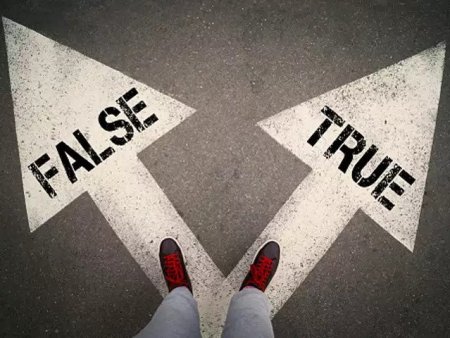“The Science” Changed Twice In A Week
Наука менялась дважды в неделю
Published on
Written by Tom Woods

Вы помните, когда в 1980-х годах медицинские учреждения предупреждали нас не есть яйца из-за паники сальмонеллы, которые на самом деле являются одними из лучших продуктов, которые вы можете есть.
Вы помните, когда нас призывали потреблять 11 порций злаков в день. (Сейчас без шести восемь, но эта ужасная пищевая пирамида почти не изменилась.)
Теперь вы скажете: Вудс, никто не идеален. Наука – это постоянно развивающийся поиск истины. Дайте им время, и они исправятся.
Если бы это было то, с чем мы имели дело, это было бы одно. По мере того, как проводится больше исследований и появляется больше информации, следует ожидать, что мы будем корректировать наши взгляды. Я понимаю.
Но не говоря уже о том, как необоснованно много времени требуется для того, чтобы ошибочное заключение о состоянии здоровья было отменено, и как догматически медицинские учреждения настаивают на вещах, которые они не могли бы знать с необходимой степенью достоверности (поскольку, в конце концов, они позже превращаются в оказывается ложным), кажется, что здесь работает что-то большее.
Как и в других областях академической науки, исследования в области здравоохранения искажаются из-за источников финансирования и склонности к консенсусу, что делает практически невозможным публикацию, финансирование или даже признание иных, т.н. диссидентских парадигм.
You remember when the health establishment warned us not to eat eggs back in the 1980s, due to the Salmonella scare, which in fact are some of the best things you can eat.
You remember when they urged us to consume 11 servings of grains per day. (It’s now six to eight, but that awful food pyramid is still largely unchanged.)
Now you’ll say: Woods, nobody’s perfect. Science is an ever-evolving search for the truth. Give them time, and they’ll get it right.
If that’s what we were dealing with, that would be one thing. As more research is done and more information comes to light, it’s to be expected that we’ll adjust our views. I get that.
But apart from how unreasonably long it seems to take for a faulty health conclusion to be reversed, and how dogmatically the health establishment insists on things it couldn’t possibly have known with the requisite degree of certainty (since, after all, they later turn out to be false), something more seems to be at work.
As with other parts of academia, health research gets skewed by funding sources, and by a pro-consensus bias that makes it difficult to impossible for dissident paradigms to get published, funded, or even acknowledged at all.
Work in support of the existing consensus, meanwhile, is not scrutinized as thoroughly as it should be.
Recent case in point: the past 16 years of Alzheimer’s research may have been directed down a dead end, thanks to the uncritical acceptance of crucial papers by Sylvain Lesné.
Neuroscientist Matthew Schrag recently pointed out multiple examples of faulty data in Lesné’s papers; they are cases of “shockingly blatant” image tampering, according to Donna Wilcock, an Alzheimer’s expert at the University of Kentucky.
Lesné’s research supported the dominant so-called amyloid hypothesis of Alzheimer’s, and Schrag, speaking to Science magazine, amplified one of the points I just made here: supporters of the reigning hypothesis were much too uncritical of research that supported their view, and were not the noble exemplars of pure “science,” unaffected by anything other than strict reliance on the data, that we read about in fairy tales.
Then, too, we’re now learning that the “chemical imbalance” theory of depression, upon which many people based their therapeutic regimens, may turn out to have been b.s. all along.
Covid research is a fiasco unto itself. Stanford’s Jay Bhattacharya says that having Anthony Fauci as “de facto head of covid policy and also in charge of billions of dollars for government grants to scientists is also a conflict of interest.”
My point is this:
“Public health” officials give lousy health advice.
Lots of economists nowadays give lousy economic advice.
Most historians teach their political agenda rather than history.
One “expert” class after another has to be viewed with skepticism, to put it mildly.
How are we supposed to navigate a world in which ideologues are trying to colonize our children’s minds, official “health” recommendations are sometimes downright moronic (remember Michelle Obama’s school lunches, drawn out of the nutritional consensus of 1977?), economists gaslight you about inflation and the Federal Reserve, and the list just goes on and on?
Not to mention, these people aren’t exactly sitting there quietly publishing studies.
These are the people who came for your job, who destroyed the value of your money, who are coming for your cheap energy, who are making food harder to produce – these people, in other words, don’t just write articles. They take action.
We can’t just write articles, either.
Time for our side to take action.
Header image: The Economic Times

